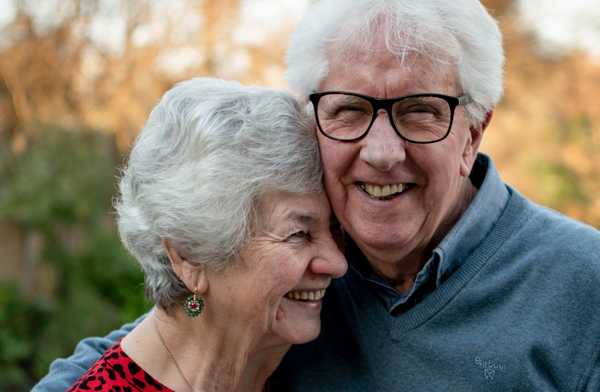For the past few weeks I've been involved in many heated debates regarding politics specifically concerning gender with a few of my male classmates. One classmate sent me article titled, "Is equality ruining your marriage?" by Fox News writer Suzanne Venker as support for their claim that women actually prefer traditional gender roles in their marriages.
However, I believe Venker's arguments against "equal" marriages are faulty.
Venker sites research at the University of Illinois, which studied 1,500 men and 1,800 women between 52-60 years old, and found that if when women's paychecks increased, they reported more symptoms of depression, while when men's income increased so did their psychological well-being.
Now, this claim is completely understandable due to the gender politics of the 50's and 60's when 52-60-year-olds were growing up. It was traditional for women to stay home while men worked, and, as impressionable children, they learned what was normal and something to expect in their own marriages from watching their parents. Every child does this, and it forms our opinions and our future lifestyle choices, for better or worse. So, wouldn't it make sense that people in that age group would be uncomfortable with the idea of equal marriages?
If you've grown up with certain gender expectations and roles your entire life, and then after the Women's Movement you discovered the possibility that your lifestyle could change if you wanted to, since the idea arose that men and women could do the same jobs and both work outside the home, wouldn't you still be a little hesitant to adopt this new idea when it goes against everything you've ever been taught about your roles? I believe you absolutely would.
Most of us are creatures of habit, and we will always be uncomfortable with change. We like to stick with the way things are because we understand our past, and we are afraid of getting hurt by making drastic changes in our personal lives due to our innate fear of the unknown.
Still, even with that fear present, we shouldn't stick to a way of life that makes women feel inferior to their male counterparts. Women should still be able to (if they choose to) work outside of the home, and it should never be a man's decision for a woman to be a housewife. Women should not feel like they are expected to be homemakers if that route does not interest them, and women should not fear that they are somehow emasculating their husbands by earning more than them, or that they are somehow less feminine due to their higher income.
If you make more than your man, who cares?
If a man loves you, he will support your success and be proud, not shame you for your accomplishments.
Venker also states, "Typically speaking, a man's identity is inextricably linked to his paycheck. A woman's is linked to her children. That this does not hold true for every woman and every man doesn't change the fact that what drives most women is different from what drives most men."
Yes, that is true that most people feel comfortable with their traditional roles, but that doesn't mean we shouldn't continue to fight them. Maybe, for some couples, "traditional" roles work for them, and if that is the case, great. However, I believe many women feel trapped and even afraid to speak out against their societally expected roles, and as a result, convince themselves that a certain lifestyle makes them happy when it is actually very unfulfilling or not something they enjoy.
I do not deny that there are women who want to be homemakers, but the problem is that some women feel forced to take that role when it is not well suited for them. If feminists (and I'm talking about the real ones that support equality, not the fake ones who've hijacked the movement and believe women are superior) keep supporting the evolution of the woman's place in society, then someday people may feel comfortable with women in any position in society.
Women should be reminded that they are just as capable of doing a man's job as a man is capable of doing his own job or a job traditionally reserved for females (teachers, nurses, etc.)
So no, Ms. Venker, I do not believe it is "natural for a woman to want to depend on her man, and [that] it is not natural for a man to depend on a woman."
Society has brainwashed us into believing that we should expect a man to take care of us, and men feel an extreme amount of pressure to support their families primarily, and sometimes even solely. THAT is what hurts families; when people force themselves into narrow definitions of what they feel they should be as wives and husbands, and get discouraged when they cannot fit that slot.
The only person a woman or man should ever depend on is themselves, and why equality in marriages isn't awful like you make it out to be.






















